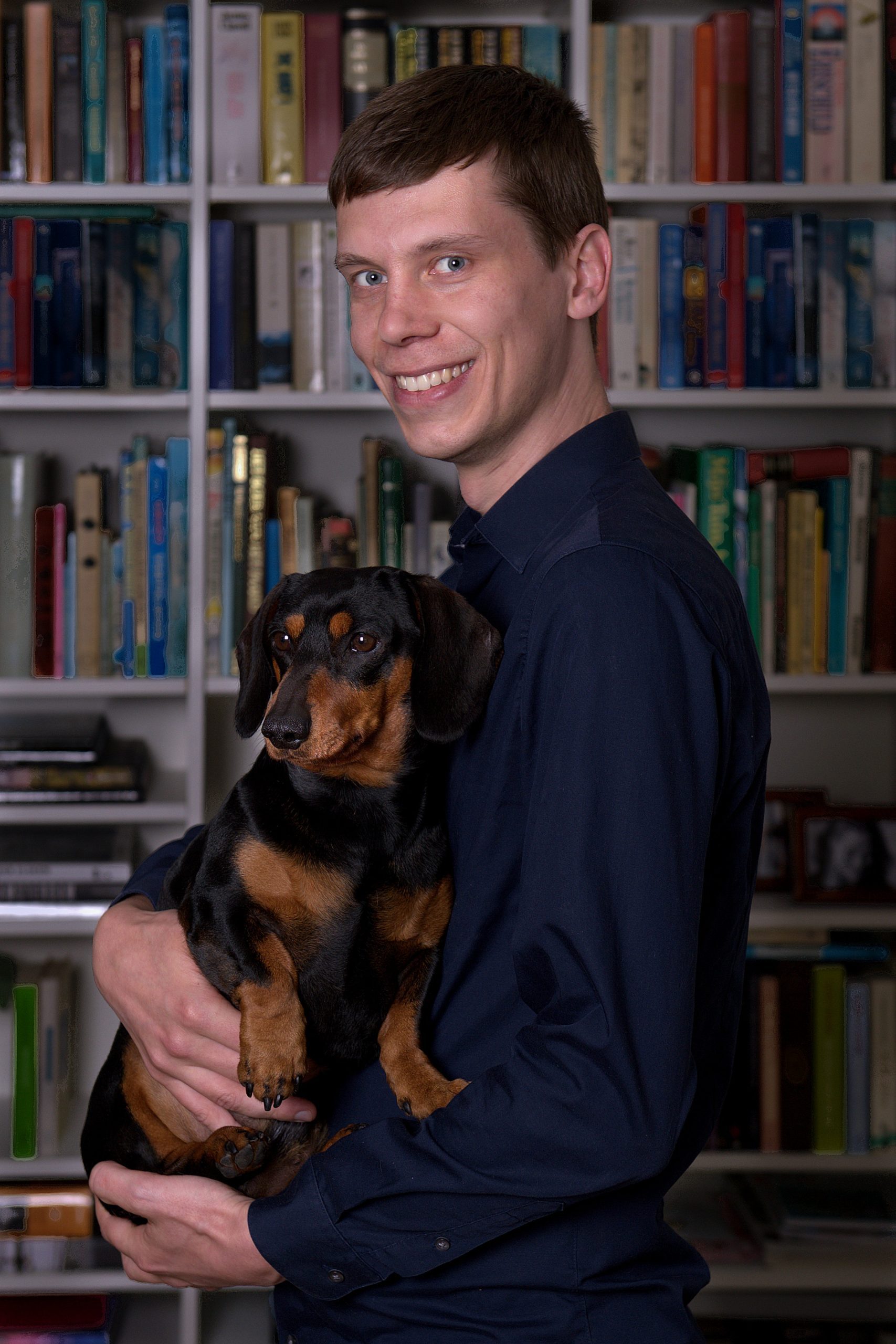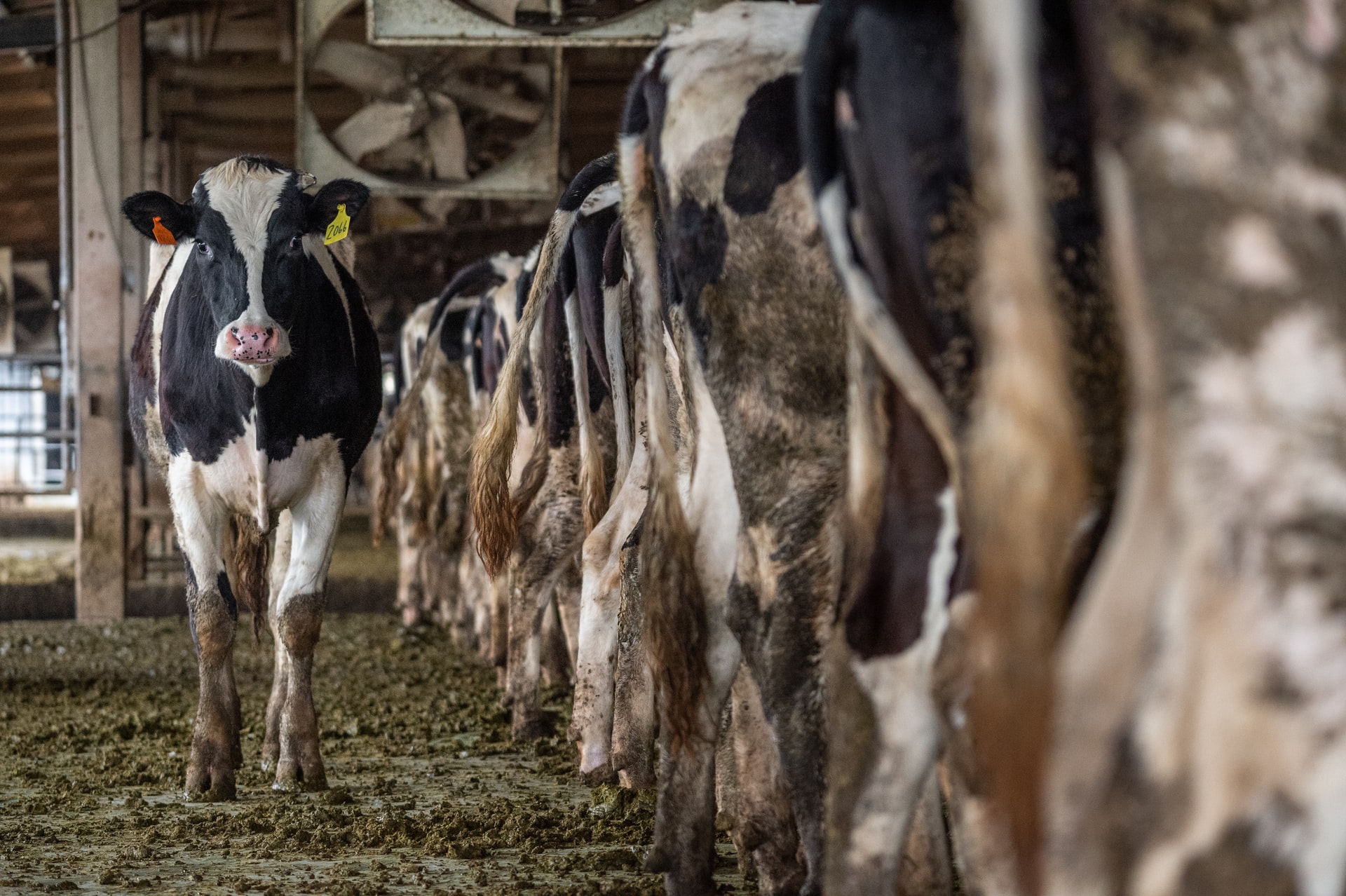Without a name for the opposite of veganism, the discussion about the relationship between humans and animals will always be cloudy, says TU Delft teacher Willem Vermaat.
Cows in the dairy industry have constant diarrhoea because of the protein rich diet they are given to produce as much milk possible. (Photo: Jo-Anne McArthur/Unsplash)
As a teacher of Communication Skills at the Faculty of Technology, Policy and Management, Willem Vermaat seemed to be the odd man out among the speakers at a recent theme evening (in Dutch) about animal rights in a debating centre in Amsterdam. But Vermaat is also an animal ethicist and after having published a few controversial opinion pieces (in Dutch) he recently published a book entitled Waarom we geen hondenmelk drinken (Why we don’t drink dog’s milk). In this book he presents the idea that it is acceptable to use animals as instruments for human purposes in an easily accessible but penetrative way. By reading a couple of passages from his book (see below) aloud, he makes the audience think.
 (Photo: Gerrit Ockers)
(Photo: Gerrit Ockers)You hope that the term ‘carnism’, the opposite of veganism, becomes embedded in society. Why?
“Using animals for human ends has become the invisible norm, in part because we do not have a separate word for it. But in fact, it really isn’t that normal. Just as vegans choose not to use animals, the opposite is also a choice. I make this explicit by giving it a name: carnism. It is the least natural thing to do, using animals as society currently does.”
Do you also discuss this with students?
“Not during my lectures on communication skills. I would then be going beyond what I am there to do. But outside of lectures, I do. I see that students really think about this subject. Young people question their relationship with the world around them much more than older generations do. Worries about the climate are for many a reason to avoid animal products or use them less. Just look at the vegetarian canteen at Architecture and the Built Environment. But considerations about animal ethics also play a role.”
‘if you make principled choices, vegetarianism is actually inconsistent’
But you reject vegetarianism, don’t you?
“I applaud vegetarians in helping reduce meat consumption. But fundamentally there are only two options: veganism or carnism. The meat industry and the dairy industry are inextricably linked. Male calves in the dairy industry are viewed as ‘by products’ that need to be fattened up and slaughtered as quickly as possible. In the egg industry roosters are gassed as soon as they hatch because they cannot lay eggs. So if you make principled choices, vegetarianism is actually inconsistent. But as a step towards fundamental change, a vegetarian canteen is a hopeful sign.”
Do you see change afoot?
“Definitely! Ten years ago vegans were viewed as a handful of ‘nutcases’. People also hardly thought about the cruelty involved in keeping social animals like rabbits or horses alone and denying them contact with their own kind. People think about these things a lot more than they did a few years ago, even people who still have a carnistic lifestyle. Even my parents and siblings, who were always so habit driven, now eat no meat at least once a week. I have never thought I would see this! People are willing to reconsider their assumptions more than before. They also don’t get on the defensive when you talk about it anymore.” (Grinning) “But that may also be because I approach them more amicably than before!”
- A passage from chapter 9 of ‘Farmer seeks wife’, about an 2017 episode from the popular television series, ‘in which the carnistic culture prevails’ (dixit Vermaat).
‘Farmer David and the three women step into the so-called nursery. When the women walk into the shed and see the piglets for the first time, two of them say ‘aaah’ in unison. ‘Aaah’, they say as if they are looking at a cute baby. ‘Gosh how sweet’, says one of the women. ‘Oh, they are really so adorable,’ says another … A little later Jorien appears in front of the camera. “He [David] sometimes speaks very callously about them. I may be a bit of a softie thinking that the little piglets are so sweet. In the end it is a product … I have to remember that it will end up on my plate, but I still find it hard.”
Hard, but that’s the way it is. In the end, the piglet is a product. Softie. These words reveal that it is good to be strong and get over your empathy. Sentimentalism. It is nothing but carnism. Having no empathy for your fellow humans makes you a psychopath in people’s minds. But having a little too much empathy for animals classified as edible makes you a sentimental softie. In the carnistic culture you shouldn’t listen to your empathy for animals. You may have empathy for animals, but you have to get over it.’ -
From: ‘Waarom we geen hondenmelk drinken’ (in Dutch)
Marieke Enter / Nieuwsredacteur



Comments are closed.